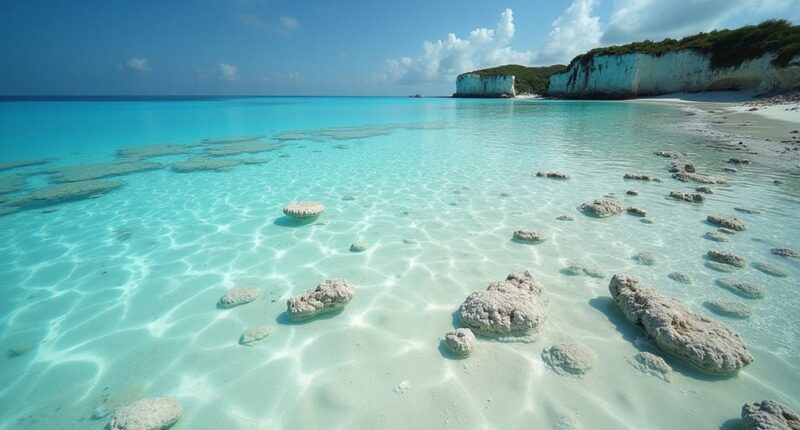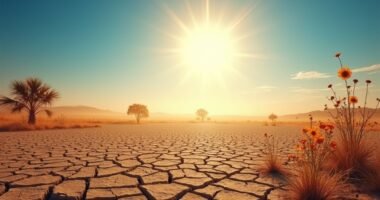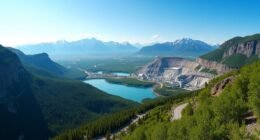The latest IPCC report shines a glaring spotlight on biodiversity loss as an urgent crisis intertwined with climate change. It highlights alarming facts—like the rapid decline in marine life from ocean acidification, and the staggering retreat of glaciers. From intense weather events wreaking havoc on habitats to species scrambling for survival, the message is clear: immediate action is essential. It’s like nature’s wake-up call; if we don’t heed it, the consequences could be dire. Curious about the specifics?
Urgent Call to Address Biodiversity Loss
Biodiversity loss has recently taken center stage, and the latest findings from the Intergovernmental Panel on Climate Change (IPCC) spotlight this alarming trend with an unprecedented focus.
For the first time, biodiversity impacts have been showcased prominently, shifting from hypothetical future concerns to urgent present realities.
Biodiversity impacts have transitioned from mere predictions to pressing realities demanding our immediate attention.
It’s as if we’ve received a wake-up call, with nature demanding our attention amidst a symphony of interdependence between climate, ecosystems, and biodiversity.
Marine ecosystems are sounding the alarm, with ocean acidification resembling a villain in a superhero movie.
Increased acidity is wreaking havoc on marine life, leading to staggering declines in biodiversity.
Fisheries are collapsing like a poorly built house of cards, while mass mortality events are being recorded with high confidence.
Coastal ecosystems are not faring any better, experiencing significant damages that may soon become irreversible.
On land, glaciers are retreating faster than a magician’s disappearing act, with a 57% increase in their disappearance rate since the 1990s. Approximately half of assessed species have shifted polewards or to higher elevations as a result of these changes.
If current trends continue, two-thirds of Earth’s glaciers could vanish by 2100.
This glacier retreat is not just a dramatic spectacle; it’s also causing hydrological changes that push some ecosystems toward irreversible shifts, particularly in vulnerable mountain regions.
Extreme weather events, like nature’s way of throwing a tantrum, are also contributing to biodiversity loss.
Hot extremes and heavy precipitation are damaging habitats, while droughts and wildfires are causing serious disruptions.
Species extinctions are now a contemporary issue rather than a distant worry, with hundreds of local extinctions becoming the sad new normal.
In the Arctic, permafrost thaw is transforming ecosystems at an alarming rate, leading to irreversible changes and reshaping species composition.
The IPCC has made it clear: integrated climate and biodiversity protection strategies are essential.
As humans, our activities have a direct hand in these changes, highlighting the urgent need for action.
Biodiversity loss isn’t just a matter for scientists; it affects everyone, reminding us that we are all part of this delicate web of life.
The Kunming-Montreal Framework offers organizations a structured approach to integrate Science-Based Targets for addressing biodiversity loss alongside climate action initiatives.









